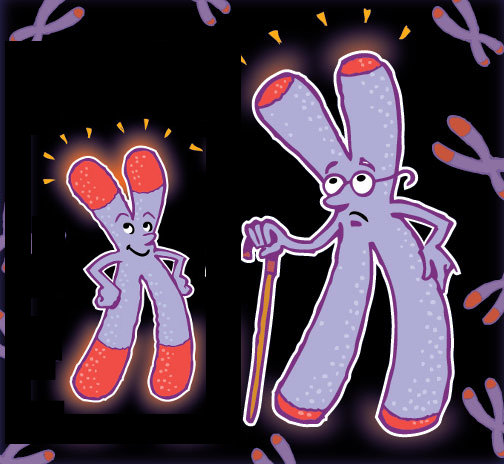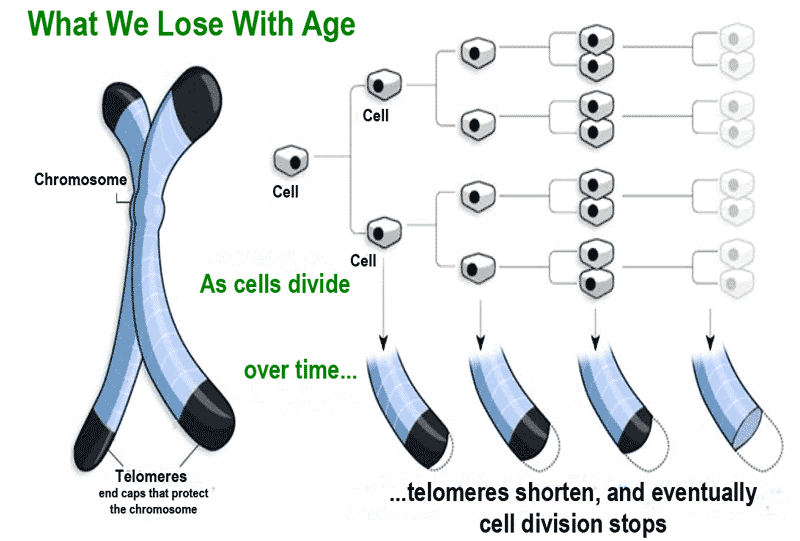
This is complex and controversial subject that many are interested in and has spawned a growing industry of testing, research, and products…
First off, what is a telomere:
Telomeres are the caps at the end of each strand of DNA that protect our chromosomes, like plastic caps at the end of shoelaces. Telomeres are an essential part of human cells that affect how our cells age. Without the caps, shoelaces become frayed until they can no longer do their job as well, just as without telomeres, DNA strands become damaged and our cells can’t do their job as effectively.
In recent years, research points to telomeres being the key to cancer and aging. The story goes: the shorter they are, the worse off you are. Can the length of your telomeres help predict how long you’ll live? Can telomere research unlock the key to eternal youth?

What does it mean to lengthen telomeres?
Are we speaking about lengthening all teleomeres in all cells? Can we control which cells this is done to? Is this even a true bio-marker of aging?
Less than 1% of a person’s cells have the enzyme telomerase and tare capable of increasing their chromosome’s telomere length. The other 99% are incapable of doing so. What about neurons, and heart cells that typically do not divide and where their telomeres do not shorten with age? Most liver and kidney cells cannot lengthen telomeres. The 1% that are the most critical include white blood cells and many stem cells.
Should we be increasing telomere length? 90% of cancer cells do this. The fact that telomeres shorten may actually allow us to live longer as it may reduce the risk of some cancers.
Correlation and Cause
It is a fact that many species have longer telomeres than humans but live a fraction of their life span. Many studies have shown a correlation within a particular species between telomere length and length of life. The evidence is that length is a good bio-marker of aging within a particular species and even that telomere attrition causes aging itself.
Testing on telomeres is done with white blood cells. A higher rate of telomere shortening of any kind might indicate an increased rate of cellular damage, but it doesn’t tell you what is causing the damage.
Is this simply another indicator of systemic inflammation? We will examine this more in our next article, and look at the products and “cures” for lengthening telomeres.



